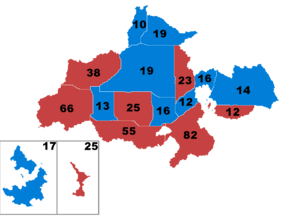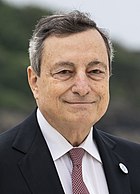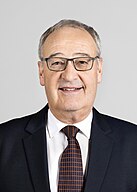2013 Soltenish Presidential Election
| |||||||||||||||||||||||||||||
462 votes up for election 232 votes needed to win | |||||||||||||||||||||||||||||
|---|---|---|---|---|---|---|---|---|---|---|---|---|---|---|---|---|---|---|---|---|---|---|---|---|---|---|---|---|---|
| Registered | 113,436,199 ( | ||||||||||||||||||||||||||||
| Turnout | 90,745,266 (78.2%) ( | ||||||||||||||||||||||||||||
| |||||||||||||||||||||||||||||
 Republics won by Mateo Benzi
Republics won by Alberto Razelli | |||||||||||||||||||||||||||||
| |||||||||||||||||||||||||||||
The 2013 Soltenish presidential election was the 7th sexennial presidential election held in Soltenia. The election was held on Wednesday, July 10, 2013. Social Democratic candidate and former economics minister Mateo Benzi won a comfortable victory against Confederal Union candidate and former foreign minister Alberto Razelli. Benzi won by 4.5 points in the popular and vote and a landslide in the presidential vote, winning 326 votes to Razelli's 136. This election marked the third straight victory for the United Left alliance.
Incumbent president Girardino DaCareza was ineligible to seek a third term. DaCareza declined to nominate a successor, stating he wished for an open primary which would reflect the will of the United Left's member parties. Privately, DaCareza expressed support for the alliance's joint ticket to go to either Benzi or senator from Fernerland, Olaf Bauer. Benzi, economics minister under DaCareza, was widely considered the front-runner for the nomination of the Social Democratic party, and his nomination was solidified with over 70.9% support from party membership. Bauer, who came from the Republican wing of the alliance, declined to contest the nomination, leaving Benzi the sole candidate. Former foreign minister Alberto Razelli decided to seek out the Confederal Union nomination, winning on the third ballot.
The election was a close race for the early parts of the campaign. Benzi ran an aggressive campaign concentrated mainly on the strong economy and foreign policy achievements of the popular DaCareza administration. He attacked Razelli as an "out of touch bureaucrat" who had never held elected office and had not served in a presidential administration since 2001. Razelli was unable to effectively respond to this line of attack, and sought to criticize the DaCareza administration, which Benzi tied himself to, especially on issues of rising crime and perceived corruption scandals in the Social Democratic party. Despite this initial closeness, Benzi pulled ahead and extended his lead in the weeks leading up to the election, especially after strong performances in two debates. Benzi won a close but comfortable victory over Razelli, winning both the presidential and popular votes.

